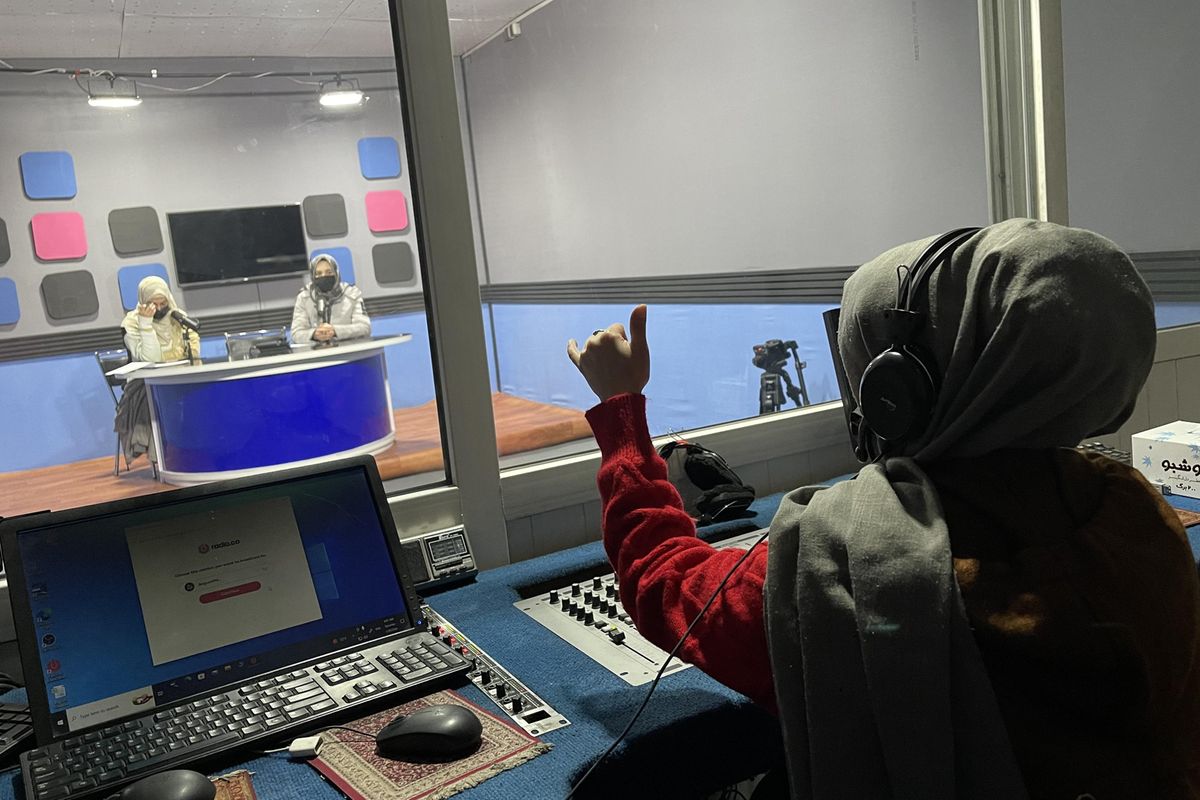This post was originally published on 3rd party site mentioned on the title ofthis site

This publication is part of the “Towards Equality” Sparknews-led program, a collaborative alliance of 16 international news outlets highlighting the challenges and solutions to reach gender equality.
Under the control of the Taliban, Afghan citizens have become one of the most deprived segments of human society. Facilitating information, education and discourse are considered some of the most perilous activities, especially for women, whose presence in educational and professional environments has been prohibited by the Taliban.
Despite these strict measures, some women’s rights activists continue their struggle. One outstanding example is Hamida Aman, who founded the only Afghan radio station where all staff members are women, all content is related to women and the goal is to bring hope back to the women of Afghanistan.
Radio Begum was launched in March 2021 by the Begum Organisation for Women, also created by Aman. Forced to seek refuge in Europe when she was just six years old, Aman, now 50, went on to study in Switzerland, majoring in history and journalism, then pursued a career in journalism. She returned to Afghanistan after September 11, 2001, and is currently living in France.
It was in late 2020 that she came up with the idea of establishing the Begum Organisation for Women and, subsequently, Radio Begum, both created to respond to the needs of Afghani women. That was about two decades after negotiations in Doha between the previous government and the Taliban had reached an impasse.
In ancient Afghanistan, Begum was an aristocratic title used in the royal court for queens; Aman chose this name for the organization and radio to restore dignity to women and to convey that they deserve to be treated like queens.
Taliban restrictions
Radio Begum operates with the assistance of 16 broadcasting antennas in 19 Afghan provinces, particularly in remote areas such as Badakhshan, Ghor and Nimruz. This coverage is crucial, as media outlets often lack access to these provinces, and the Taliban has imposed restrictions in an attempt to isolate Afghan women.
Aman says that Radio Begum, with around 30 employees, provides a platform for women to engage in dialogue and interaction, ensuring they do not feel isolated. Staff members strive to inform women about their rights in the most delicate manner possible in an effort to skirt potential repercussions from Taliban officials who might be listening. This approach is especially important in programs where animators present a feminine interpretation of religious texts to female audiences.
The primary focus, however, is women’s education. Six hours a day are dedicated to educating female students in grades 7 to 12 in Persian and Pashto languages. Other content covers health, nutrition, parenting and women’s advice. Radio Begum also provides opportunities for female doctors to answer women’s questions in live programs.
All programming is designed to support and strengthen the voice of women while defending their rights. There are opportunities for Afghan women to narrate their stories, entertainment for women, and shows to boost their courage and self-confidence. Yet other programs educate girls, helping them develop skills that will give them a better future. The goal is to empower women and instil hope, to let them know that they are not alone but rather are facing challenges similar to those of so many other women.
Aman is satisfied with Radio Begum’s performance.
“Considering the current situation of Afghan women and the restrictions imposed by the authorities to limit their operational capacities—such as no interaction between women and men, forbidding women to attend governmental press conferences, forbidding women to travel alone and so on—one can say, ‘Begum is doing an amazing job.”
The rapid developments in Afghanistan have transformed Radio Begum into the most sought- after outlet for women. Aman says that initially, Radio Begum addressed only specific needs of women, but after the Taliban takeover, it became the “voice of Afghan women.”
Sensitive endeavour
International journalists have visited the Radio Begum studios but for security reasons, they have refrained from conducting many interviews.
In Afghanistan, where women have been isolated by the Taliban, the operation of such a radio station is a sensitive endeavour. Aman admits that they face daily challenges, with their programs being monitored similarly to social media. The Taliban also summons them to clarify the content of the radio. Although she acknowledges that the Taliban sometimes reacts harshly, she says that they have, so far, always reached an understanding through dialogue, albeit with limited choices.
Aman hopes that Radio Begum will continue to provide services even in the face of obstacles posed by the Taliban. She takes pride in her team’s work, especially for providing necessary education for women. At a time when education for girls is forbidden beyond sixth grade and there are prohibitions on women’s employment, on their right to dress freely, on their right to assemble and on their participation in social activities, Radio Begum has become and remains the voice of Afghan women.




